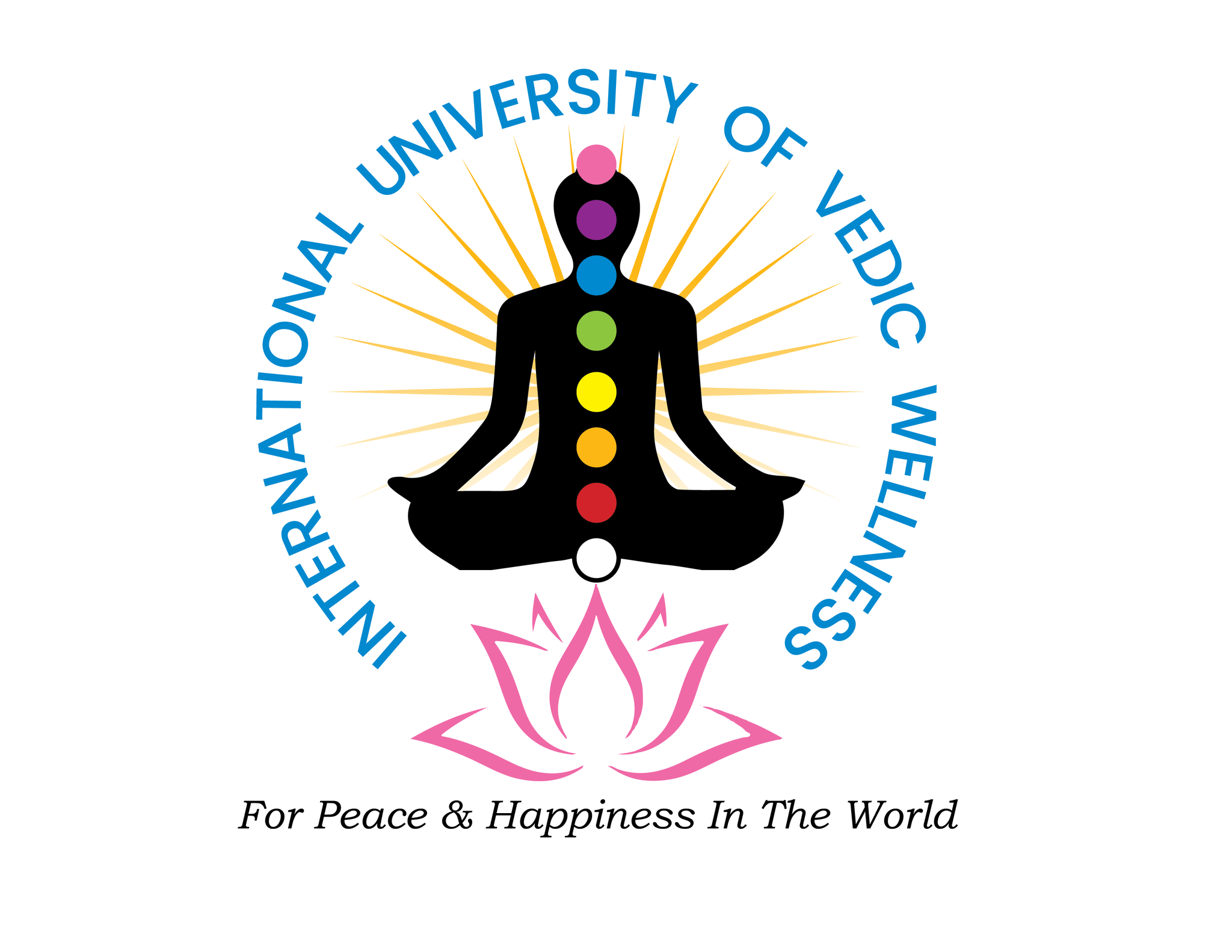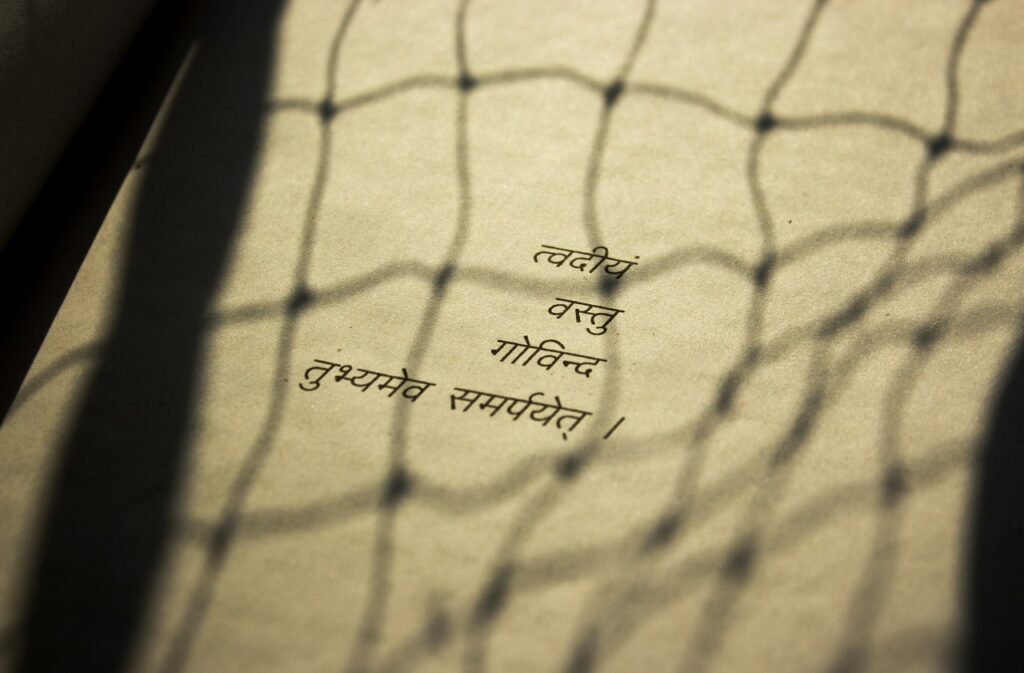Abhimanyu Kumar MS MD PhD
I. Introduction:
The Vedas, ancient Indian texts dating back millennia, are a repository of profound wisdom that extends beyond ritualistic practices to encompass intricate understandings of human behavior, relationships, and societal structures 1. These scriptures offer timeless insights into the dynamics of family life, principles of harmonious coexistence, and methods for personal and spiritual growth. In an era marked by rapid social changes and evolving family structures, the enduring relevance of Vedic wisdom is increasingly being recognized as a potential source of guidance for navigating the complexities of modern family life 3. As individuals and families seek holistic approaches to well-being and stronger interpersonal connections, the scientific interpretations of Vedic principles present a valuable framework for fostering resilient and harmonious family bonds 6. This exploration delves into the core Vedic principles, their psychological and sociological underpinnings, their adaptation to modern contexts, and the emerging scientific validation of their efficacy in strengthening families.
II. Core Vedic Principles for Stronger Families:
Dharma: Duty and Righteous Conduct within the Family:
Central to Vedic teachings is the concept of Dharma, which signifies one’s duty, righteousness, and the natural order of things 8. Within the family unit, Dharma outlines the specific responsibilities and obligations of each member, emphasizing ethical conduct and contributing to overall harmony and balance 12. This principle extends beyond mere adherence to rules, fostering an intrinsic understanding of one’s role and the importance of fulfilling it with integrity and a sense of responsibility towards other family members. For instance, the Vedas emphasize the duty of parents to nurture and guide their children, while children are expected to respect and care for their elders 10. This framework of mutual responsibility creates a stable and supportive environment where each member feels valued and secure, contributing to stronger family bonds and a sense of collective well-being.
Satya and Ahimsa: Truthfulness and Non-Violence in Family Interactions:
Two fundamental pillars of Vedic ethics, Satya (truthfulness) and Ahimsa (non-violence), play a crucial role in fostering healthy family relationships 8. Satya underscores the importance of honesty, transparency, and open communication among family members, which are essential for building trust and resolving conflicts constructively 9. When interactions are rooted in truth, misunderstandings are minimized, and a foundation of reliability is established. Ahimsa extends the principle of non-violence beyond physical harm to encompass emotional and verbal interactions, advocating for kindness, compassion, and avoiding any form of harm, be it through harsh words or negative actions 4. By prioritizing truthful and compassionate communication, families can create a safe and nurturing space where members feel respected and understood, fostering deeper connections and resilience in the face of challenges.
III. The Vedic Understanding of Human Nature and Relationships:
Atman: The Divine Essence and Interconnectedness within Families:
The Vedic concept of Atman, the eternal and unchanging essence of the self, provides a profound understanding of human nature and the interconnectedness within families 9. This philosophy posits that every individual, including each member of a family, possesses an inherent divinity, a spark of the universal consciousness 9. Recognizing this shared spiritual essence fosters a deep sense of unity, respect, and unconditional love that transcends superficial differences and strengthens familial bonds 15. When family members perceive each other as manifestations of the same Atman, it cultivates empathy, understanding, and a profound sense of belonging, laying the groundwork for harmonious and supportive relationships. This perspective encourages parents to view their children not merely as physical beings but as spiritual entities on their own unique journey, fostering a sense of detached yet loving guidance 15.
The Vedic Model of the Mind and its Impact on Family Dynamics:
The Vedas offer a sophisticated model of the mind, comprising Manas (sensory mind), Buddhi (intellect), Ahamkara (ego), and Chitta (consciousness), each playing a distinct role in shaping thoughts, emotions, and behaviors within the family 17. Understanding these components can provide valuable insights into the dynamics of family interactions. Manas processes sensory inputs and generates emotional responses; recognizing its role can help family members become aware of their emotional triggers and manage their reactions more effectively 19. Buddhi, the faculty of intellect, is responsible for reasoning and judgment; cultivating a strong Buddhi enables wise and ethical decision-making that considers the well-being of all family members 19. Ahamkara, the ego, fosters a sense of individuality, but an unchecked ego can lead to conflicts; balancing it through self-reflection and humility is crucial for harmonious relationships 19. Chitta is the storehouse of memories and impressions; understanding shared Chitta can help families recognize and address negative patterns that might be affecting their emotional well-being 19.
Table: The Vedic Model of the Mind and its Implications for Family Dynamics
| Component of Mind | Vedic Description | Relevance to Family Well-being | Example in Family Life |
| Manas | Receiver of sensory inputs, seat of emotions, involved in thought formation 19 | Understanding emotional triggers and managing immediate reactions for a harmonious environment 19 | A child feeling slighted by a sibling’s comment (Manas) can be guided to understand the sibling’s intention through thoughtful discussion (Buddhi). |
| Buddhi | Faculty of intellect, responsible for reasoning, judgment, introspection, and pursuit of truth 17 | Making wise and ethical decisions considering the well-being of all family members; introspection to prevent impulsive reactions 19 | Family members using logical reasoning (Buddhi) to decide on a fair distribution of household chores. |
| Ahamkara | Sense of individuality and identity, the “I-maker” 17 | Recognizing and managing egoistic tendencies to avoid conflicts; cultivating humility and practicing selfless service 19 | A parent setting aside their own preference (Ahamkara) to support a child’s choice of activity. |
| Chitta | Storehouse of memories, impressions (Samskaras), and deep-seated tendencies (Vasanas) 17 | Recognizing and addressing negative patterns or tendencies affecting emotional well-being; fostering positive shared experiences 19 | A family consciously working to break a pattern of reacting with anger (Chitta) by practicing calm communication. |
IV. Evolution and Adaptation of Vedic Family Structures:
The Traditional Joint Family System: Principles and Benefits:
Historically, the joint family system was a prominent feature of Vedic society, characterized by multiple generations residing together under one roof 12. This system was underpinned by principles of shared resources and responsibilities, with the eldest male member often serving as the head, managing family affairs and ensuring the well-being of all members 12. The benefits of this structure were numerous, including a strong support system providing emotional, financial, and practical assistance during times of need 12. Shared responsibilities eased the burden on individuals, fostering cooperation and teamwork 12. Elders played a crucial role in preserving and transmitting cultural heritage, values, and traditions to younger generations 12. The pooling of resources also ensured financial stability and provided opportunities for collective growth 12. This intergenerational living environment served as a platform for learning and development, fostering a sense of belonging, security, and shared identity 12.
Adapting Vedic Principles to Modern Nuclear Family Structures:
While the prevalence of the joint family system has declined due to various socio-economic factors, the core principles of Vedic family life remain highly adaptable to modern nuclear family structures 10. The essence of Dharma, emphasizing duty and ethical conduct, can guide individual responsibilities within the nuclear family 10. Respect for elders, though they may not reside in the same household, can still be actively cultivated through regular interaction and care 10. The Vedic emphasis on love and nurturing of children remains a universal principle 12. Shared responsibilities, though perhaps divided differently in a nuclear setup, are still crucial for a balanced and harmonious home 12. Even the concept of detached parenting, recognizing the spiritual essence of the child, can be applied in modern contexts to foster independence and inner growth 15. The evolving roles within modern families necessitate a conscious effort to embody these timeless Vedic principles, ensuring that the underlying values of mutual support, care, and responsibility continue to strengthen family bonds despite structural changes 4.
V. Vedic Insights into Effective Communication and Mutual Understanding:
The Art of Mindful Communication (Satyam Bhruyaat):
Vedic wisdom places significant emphasis on the art of communication, advocating for articulating the truth (Satya) in a manner that is pleasing and beneficial (Satyam Bhruyaat) 3. This principle underscores the importance of honest and positive communication within the family, ensuring that truth is conveyed with empathy and consideration, thereby minimizing negativity and fostering understanding 3. Active listening, where each family member attentively hears and understands the perspectives of others, is also a key aspect aligned with the Vedic principle of inclusivity and respect for diverse viewpoints 3. By cultivating mindful communication, families can create an environment where open dialogue is encouraged, fostering stronger connections and facilitating the resolution of conflicts with greater ease and understanding.
Overcoming Ego and Fostering Empathy:
The Vedic understanding of Ahamkara (ego) provides insights into a common source of conflict within families 19. Recognizing how ego-driven tendencies can hinder effective communication and create misunderstandings is the first step towards fostering empathy. Vedic teachings emphasize the cultivation of humility and compassion as powerful antidotes to ego 4. By practicing self-reflection and striving to understand perspectives beyond one’s own, family members can develop greater empathy, which is crucial for building strong and supportive relationships 4. When individuals can transcend their egoistic needs and connect with the feelings and experiences of others in the family, it creates a foundation of understanding and mutual respect that strengthens their bonds and promotes harmony.
VI. Fostering Emotional Well-being and Resilience through Vedic Practices:
Meditation and Mindfulness for Emotional Balance:
The Vedas highlight the profound benefits of meditation (Dhyana) and mindfulness (Smriti) for achieving emotional balance and inner peace 4. These practices involve quieting the fluctuations of the mind and cultivating present moment awareness, which can significantly reduce stress, anxiety, and emotional turbulence within families 7. Modern scientific research supports these ancient practices, demonstrating their positive impact on mental health, including improved focus, reduced anxiety, and enhanced emotional regulation 7. By incorporating meditation and mindfulness into their daily routines, families can create a more tranquil and supportive environment, fostering emotional well-being and resilience in the face of life’s challenges.
Yoga and Pranayama for Physical and Mental Harmony:
Yoga, encompassing physical postures (Asana), and Pranayama, the practice of breath control, are integral aspects of Vedic tradition that promote harmony between the body and mind 6. These practices not only enhance physical health and flexibility but also have significant mental and emotional benefits, including stress reduction, improved focus, and a greater sense of overall well-being 7. When families engage in yoga and pranayama together, it can create shared positive experiences, strengthen their connection, and contribute to a more balanced and harmonious family life. The emphasis on holistic living in Vedic teachings underscores the interconnectedness of physical, mental, and spiritual health, and these practices serve as practical tools for achieving this balance.
VII. Navigating Modern Family Roles and Responsibilities with Vedic Guidance:
Traditional Vedic Perspectives on Family Roles:
In traditional Vedic society, family roles were often clearly defined, with the head of the household (Grihapati) holding significant authority and responsibility for managing family affairs 12. Parents were responsible for nurturing and educating their children, while children were expected to respect and obey their parents and elders 12. The Grihastha Ashrama, the stage of life dedicated to family, emphasized fulfilling one’s duties and responsibilities towards all family members and society 10. This framework aimed to create a stable and supportive environment where each member contributed to the overall well-being of the family unit.
Adapting Roles and Responsibilities to Contemporary Family Structures:
While modern family structures are more diverse and egalitarian, the underlying principles of mutual support, care, and responsibility from Vedic teachings remain highly relevant 4. The concept of shared responsibilities is increasingly important in today’s nuclear families and single-parent households, where the burden of work and family care needs to be distributed equitably 12. The core values of respect, love, and nurturing, emphasized in Vedic teachings, can be adapted to fit the specific dynamics of any modern family structure 4. Open communication and a willingness to adapt traditional roles to accommodate changing social and economic realities are essential for maintaining harmony and strength within contemporary families 23. The focus remains on fulfilling one’s duties with a sense of care and responsibility towards all members, ensuring that the fundamental principles of Vedic family life continue to provide guidance and support.
VIII. Vedic Principles and Techniques for Conflict Resolution and Harmony:
The Sama-Dama-Bheda-Danda Approach to Conflict Resolution:
Vedic wisdom offers a structured approach to conflict resolution known as Sama-Dana-Bheda-Danda 28. This framework outlines a progressive strategy, starting with Sama (conciliation through dialogue and understanding), followed by Dama (offering gifts or concessions), then Bheda (creating division or isolation if necessary), and finally Danda (punishment or assertive action) as a last resort 28. The emphasis is on prioritizing peaceful and constructive methods, with dialogue being the primary tool for resolving misunderstandings and addressing the root causes of conflict 28. This approach encourages families to first attempt to understand each other’s perspectives and find common ground before resorting to more drastic measures, promoting a culture of open communication and problem-solving within the family.
Emphasis on Dharma and Duty in Resolving Disputes:
Vedic teachings on Dharma (duty) and the importance of fulfilling one’s responsibilities provide a guiding framework for conflict resolution within families 8. By encouraging family members to act ethically and consider the well-being of others, Dharma promotes a sense of fairness and responsibility in addressing disagreements 30. The concept of even-mindedness and detachment (Nishkaam Karma), where one performs their duty without attachment to the outcome, can also be valuable in approaching conflicts with greater objectivity and reducing emotional reactivity 26. This perspective encourages family members to focus on finding just and harmonious solutions that uphold the overall well-being of the family unit, rather than being solely driven by personal desires or ego.
IX. Scientific Perspectives on Vedic Family Wisdom:
Alignment with Modern Psychology and Sociology:
Modern scientific research in psychology, sociology, and family studies increasingly supports certain Vedic principles related to human behaviour and relationships 2. For instance, the Vedic emphasis on mindfulness and detachment aligns with the observed benefits of these practices in modern psychological studies on stress reduction, emotional regulation, and improved mental well-being 7. Research indicates that meditation, a core Vedic practice, can improve cognitive functions, self-awareness, and emotional resilience 25. The Vedic understanding of interconnectedness resonates with sociological perspectives on the importance of social support and community for individual and family well-being. This growing body of evidence suggests that the ancient wisdom contained in the Vedas holds practical value and can offer insights that complement modern scientific understandings of family dynamics.
Areas for Further Research and Validation:
While there is increasing alignment between Vedic principles and modern science, further research is needed to explore and validate other aspects of Vedic wisdom related to family life. Studies could investigate the impact of adhering to Vedic ethical principles, such as Dharma, Satya, and Ahimsa, on family cohesion and conflict resolution in contemporary settings. Research could also explore the effectiveness of the Sama-Dana-Bheda-Danda approach in resolving family disputes compared to modern conflict resolution techniques. Additionally, longitudinal studies could examine the long-term effects of incorporating Vedic practices like meditation and yoga on family well-being and resilience across generations. Such research would further strengthen the evidence base for the practical application of Vedic insights in fostering stronger modern families.
X. Contemporary Applications and Case Studies:
Vedic wisdom is increasingly being applied in contemporary settings to strengthen family relationships, with individuals and families consciously integrating its principles and practices into their lives 3. Many individuals find that incorporating daily meditation and mindfulness practices, rooted in Vedic teachings, helps them manage stress and improve communication within their families 4. The emphasis on ethical conduct (Dharma) guides parents in instilling values in their children and fostering a sense of responsibility 4. Even in nuclear families, the underlying principles of the joint family system, such as shared responsibility and mutual support, are being consciously adopted to create a stronger sense of togetherness 12. Examples from ancient epics like the Mahabharata and Ramayana offer timeless lessons on parenting, duty, and family values that continue to resonate with modern families 35. Furthermore, organizations and communities dedicated to promoting Vedic wisdom provide resources and support for individuals seeking to integrate these principles into their family life, indicating a growing interest in the practical application of these ancient teachings.
XI. Conclusion:
The scientific interpretations of Vedic insights offer a rich and valuable resource for fostering stronger families in modern times. Principles such as Dharma, Satya, and Ahimsa provide a strong ethical foundation for family interactions. The Vedic understanding of Atman emphasizes the inherent interconnectedness and divinity within families, promoting respect and unconditional love. The Vedic model of the mind offers a framework for understanding and navigating emotional and psychological dynamics. While family structures have evolved, the core Vedic principles of duty, responsibility, and mutual support remain highly adaptable to contemporary life. Practices like meditation, mindfulness, yoga, and pranayama, rooted in Vedic tradition, offer scientifically supported methods for enhancing emotional well-being and resilience. The structured approach to conflict resolution and the emphasis on ethical conduct provide guidance for navigating disagreements constructively. As modern science continues to validate the wisdom embedded in these ancient texts, the integration of Vedic insights into family life holds immense potential for cultivating greater harmony, resilience, and love within our most fundamental social unit.
Works cited
- Hinduism and Social Structure, accessed March 28, 2025, https://ca01001934.schoolwires.net/cms/lib/CA01001934/Centricity/Domain/3209/Hindu%20Beliefs%20readings.pdf
- Science Embedded Vedic Philosophy and Educational Implications – ResearchGate, accessed March 28, 2025, https://www.researchgate.net/publication/369866794_Science_Embedded_Vedic_Philosophy_and_Educational_Implications
- Ancient Wisdom for Modern Living: Unveiling Vedic Pearls of Insight | by Meda Raghavendra | Medium, accessed March 28, 2025, https://medium.com/@medaraghav/ancient-wisdom-for-modern-living-unveiling-vedic-pearls-of-insight-f6e464fba4a1
- Embracing Timeless Wisdom: Applying Vedic Principles in Modern Living – VRA, accessed March 28, 2025, https://vivekagnihotri.com/embracing-timeless-wisdom-applying-vedic-principles-in-modern-living/
- Vedic Wisdom For Modern People – Apple Podcasts, accessed March 28, 2025, https://podcasts.apple.com/us/podcast/vedic-wisdom-for-modern-people/id1651341875
- (PDF) Benefits of Vedic Learning for improving competence and strengthening mental health – ResearchGate, accessed March 28, 2025, https://www.researchgate.net/publication/382750214_Benefits_of_vedic_learning_for_improving_competence_and_strengthening_mental_health
- Benefits of Vedic learning for improving competence and strengthening mental health, accessed March 28, 2025, https://journal-iasssf.com/index.php/LaD/article/download/1045/663/6356
- Guard Your Reputation With Integrity: Vedic Wisdom For Modern Challenges, accessed March 28, 2025, https://adikkachannels.com/guard-your-reputation-with-integrity-vedic-wisdom-for-modern-challenges/
- Hinduism Beliefs, Principles, and Disciplines – Learn Religions, accessed March 28, 2025, https://www.learnreligions.com/principles-and-disciplines-of-hinduism-1770057
- Vedas-Ancient Wisdom for Modern Life-Practical Applications – India’s Biggest Dashakarma Bhandar | Poojn.in, accessed March 28, 2025, https://www.poojn.in/post/15582/vedas-ancient-wisdom-for-modern-life-practical-applications
- Vedic Teachings in Modern Times: Course on Vedas Perspective, accessed March 28, 2025, https://vedicwellnessuniversity.com/course-on-vedas/
- Sanatana Dharma And Joint Family: A Historical And Spiritual Perspective, accessed March 28, 2025, https://adikkachannels.com/sanatana-dharma-and-joint-family-a-historical-and-spiritual-perspective/
- Vedic Era and Social Conditions: Unraveling the Tapestry of Ancient India – IJFMR, accessed March 28, 2025, https://www.ijfmr.com/papers/2023/6/9557.pdf
- FAMILY LIFE – Vedic Hindu Wisdom, accessed March 28, 2025, https://vedichinduwisdom.com/family-life/
- Vedic Relationships and Detached Parenting – Acharya Shunya, accessed March 28, 2025, https://www.acharyashunya.com/post/2018/08/16/vedic-relationships-and-detached-parenting
- Fundamental Principles of Vedanta – Vedanta Society of New York, accessed March 28, 2025, https://www.vedantany.org/articles/blog-post-title-two-6txr3
- Vedic Psychology: Unveiling the Depths of Human Consciousness, accessed March 28, 2025, https://mithrah.com/2024/04/30/vedic-psychology-unveiling-the-depths-of-human-consciousness/
- How Hindu teachings can help our kids’ mental health crisis, accessed March 28, 2025, https://www.hinduamerican.org/blog/how-hindu-teachings-can-help-our-kids-mental-health-crisis
- The Vedic Model of the Mind: A Contemporary … – Origin of Science, accessed March 28, 2025, https://www.originofscience.com/science/the-vedic-model-of-the-mind-a-contemporary-exploration/
- Social structure in early vedic period – Unacademy, accessed March 28, 2025, https://unacademy.com/content/bpsc/study-material/history/social-structure-in-early-vedic-period/
- Transformation of Indian Family Structures: Traditional vs. Contemporary Dynamics – IJNRD, accessed March 28, 2025, https://www.ijnrd.org/papers/IJNRD1612005.pdf
- Our Vedic Legacy – Acharya Shunya, accessed March 28, 2025, https://www.acharyashunya.com/vediclegacy-lineage-teachers
- Changing Dynamics of Family Structure in India | Current Affairs – Vision IAS, accessed March 28, 2025, https://visionias.in/current-affairs/weekly-focus/2024-03-08/social-issues/introduction
- Managing Anxiety and Stress Holistically: Vedic Wisdom from the Purna Health Management System – SciSpace, accessed March 28, 2025, https://scispace.com/pdf/managing-anxiety-and-stress-holistically-vedic-wisdom-from-1qwushv2qu.pdf
- Vedic Perspective of Wellness and Wellbeing | Request PDF – ResearchGate, accessed March 28, 2025, https://www.researchgate.net/publication/376585911_Vedic_Perspective_of_Wellness_and_Wellbeing
- (PDF) VEDIC LIFESTYLE IN STRESS CONTROL – ResearchGate, accessed March 28, 2025, https://www.researchgate.net/publication/383283805_VEDIC_LIFESTYLE_IN_STRESS_CONTROL
- How to Manage Family Stress – Global Swasthyam, accessed March 28, 2025, https://www.globalswasthyam.com/blog/how-to-manage-family-stress/
- Conflict resolution: Part 3 – Ancient Indian perspective – Times of India, accessed March 28, 2025, https://timesofindia.indiatimes.com/blogs/bv-lens/conflict-resolution-part-3-ancient-indian-perspective/
- RECORDED LIVE: The Vedic Approach to Conflict Resolution | Vedic Webinar | Episode 5 | Mahesh Prabhu – YouTube, accessed March 28, 2025, https://www.youtube.com/watch?v=4rKErK5dt74
- Conflict Management in Hinduism – Research India Publications, accessed March 28, 2025, https://www.ripublication.com/ijhss18/ijhssv8n1_04.pdf
- Conflict Resolution in Bhagavad Gita- Opportunties and Challenges – Medium, accessed March 28, 2025, https://medium.com/@rld.bcs/conflict-resolution-in-bhagavad-gita-opportunties-and-challenges-db2658640719
- Vedic Solutions to Modern Problems – Version 1 – Sep-Oct – awgp.org, accessed March 28, 2025, https://www.awgp.org/en/literature/akhandjyoti/2006/Sep_Oct/v1.VedicSolutions
- Managing Stress and Health an Ancient Indian Scriptures Perspective, accessed March 28, 2025, https://ijefm.co.in/v7i1/Doc/24.pdf
- Cure for Family Issues – BAPS, accessed March 28, 2025, https://www.baps.org/Article/2010/–Cure-for-Family-Issues-1995.aspx
- Why Modern Parenting Is Failing – Lessons From Mahabharata & Ramayana, accessed March 28, 2025, https://adikkachannels.com/why-modern-parenting-is-failing-lessons-from-mahabharata-ramayana/




